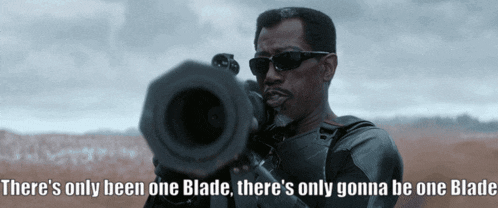Getting it out of the way at the start: I really enjoyed
Infinity War. It has some overstuffing problems inherent in grouping together dozens of previously established characters, and with comic book properties you can’t rely on any of the losses to stick (so they’re not as deeply felt as they should be), but it’s often hilarious and surprisingly moving. A big part of that is the villain, Thanos.
I’ve seen quite a few folks saying that Thanos is to
Infinity War as Killmonger was to
Black Panther, in that we’re finally getting great villains in the Marvel Cinematic Universe (MCU): ones with motivation we can understand and maybe even empathize with. I got that with Killmonger, who is still the most interesting villain in the MCU. He was understandable, empathetic, backed by a great performance, and his motivation was logical and engaging. Thanos checks most of those same boxes, but the main thing that didn’t work for me was his motivation.
Brolin’s performance is solid, pushing emotions through a layer of GCI with enough conviction that I bought him as a fully realized character. I felt empathy during his big scene with Gamora, and his relationship with his “adopted” daughter completely worked on me. His power felt real and intimidating, and I never doubted for a second that he was the biggest threat our heroes had ever faced.
But the reason for all this? Overpopulation and scarce resources.
His incitement is rooted in his home planet — he was the harbinger for what ceaseless expansion would do to their society, and after they sucked their planet dry of resources and society crumbled, he was validated. So he decides the best thing to do with his time is wiping out half of all life in the universe.
But how did he know that every planet with life forms would meet the same fate? If that’s just the logical conclusion to all life, is his solution the best way to avoid that?
As our population grows, we come up with better technology, like more efficient ways of making food and better medicine. Population increases would be primarily restricted by resources. So let’s say half of our population vanishes tomorrow and we go from 7 billion to 3.5 billion — our technology would still exist, but now we would have freed up resources.
A friend (
Jon Partridge) that teaches ecology explained it thusly: if you free up resources you switch from logistic growth to exponential growth. We would be back at 7 billion in no time. It only took 50 years to go from 3 to 7 billion with the technology available to us from 1960 to 2010. Doesn’t seem that wiping out half of all life would be effective, as he’d have to redo it at minimum every 50 years.
This ignores the fact that, with the unlimited power of his Infinity Gauntlet, couldn’t Thanos help with overpopulation and scarce resources in different ways? Maybe provide all of the universe ways to expand sustainably, or ways to possibly expand to new planets. Or maybe restrict every life form to 2 offspring, thus keeping populations consistent.
Hell, he can bend reality — just increase every planet size and magically gave them more resources. It’s not a permanent solution, but it seems like it would be just as “long-term” as wiping out half of all people, and no one would have fought him so it would have been less of a hassle. Imagine all the punching he could have avoided.
I understand people might argue that I’m overthinking a comic book movie, but it didn’t take much thought for me to feel alienated by the movie’s presentation of his motivation. I can buy any number of outlandish things in movies (the MCU film with the sentient tree and talking raccoon is still my favorite) as long as the film respects its own in-world logic and is consistent with what it’s previously established.
It probably didn’t help that Thanos’ weak motivation stood in stark contrast to how well made the rest of the film was.












































